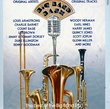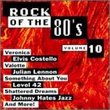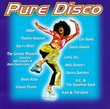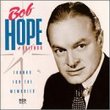| All Artists: James Horner, London Symphony Orchestra Title: Willow Members Wishing: 2 Total Copies: 0 Label: EMI Europe Generic Original Release Date: 5/20/1988 Re-Release Date: 5/5/1995 Album Type: Import, Soundtrack Genres: Special Interest, Pop, Soundtracks Style: Comedy & Spoken Word Number of Discs: 1 SwapaCD Credits: 1 UPC: 766482820528 |
Search - James Horner, London Symphony Orchestra :: Willow
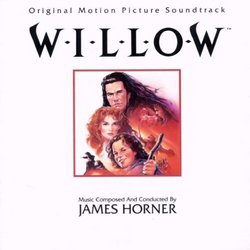 | James Horner, London Symphony Orchestra Willow Genres: Special Interest, Pop, Soundtracks
1988 Virgin release, James Horner's soundtrack to Ron Howard's 1988 fantasy epic starring Val Kilmer and Billy Barty. Eight tracks. George Lucas wrote the story & served as executive producer of the film, which was a L... more » |
Larger Image |
CD DetailsSynopsis
Album Description 1988 Virgin release, James Horner's soundtrack to Ron Howard's 1988 fantasy epic starring Val Kilmer and Billy Barty. Eight tracks. George Lucas wrote the story & served as executive producer of the film, which was a Lucasfilm production. Similar CDsSimilarly Requested CDs
|
CD ReviewsCompletely satisfied R. G. Wilson | Turlock, CA United States | 09/12/2009 (5 out of 5 stars) "Product came faster that estimated and was in excellent condition. Couldn't ask for more." I love the movie, and I love the soundtrack Miranda Whitehead | Kentucky, USA | 11/11/2009 (5 out of 5 stars) "As a child, I grew up watching the movie "Willow", and it captivated me far more than "Merlin" or any other movie with a medieval setting. The characters were heart-felt and genuine, the story was far beyond excellent, but the MUSIC....oh, the music is what made the movie for me. The music for this movie would capture my attention and never let it go. Some find the lack of lyrics to songs in movies to be detrimental and stunting, but I say it gives freedom, and this soundtrack makes my mind sing. I'm finding it hard to describe my feelings for the music of this movie at this point, so I will be quiet now. I recommend this CD to any and all RPGers (that's those who do D&D and other Table-Top role-playing games), but also to any that enjoys a good lyric-less soundtrack. I grew up with classical music (Beethoven and the lot), so when I say "This soundtrack is amazing", you know what I compare it to. Please buy it, if you can find it. I'm a proud owner of a copy of both the movie and, now, the soundtrack. Enjoy it." Blatant rip-off of Schumann, others Uluru II | United States | 08/23/2010 (3 out of 5 stars) "Modern film scores frustrate me, because they often 'borrow' heavily from existing classical music. Sometimes this is intentional - George Lucas basically told John Williams to mimic certain pieces by Holst and Stravinsky for 'Star Wars' - but other times I can't help but believe it's due to a lack of originality on the composer's part.
Take the score for Willow. 'Willow's Theme' is an almost EXACT reproduction of the first movement theme of Schumann's 3rd Symphony. The time signature and orchestration are a bit different, but the melody and chord progression are exactly the same. Schumann's music is in the public domain, conveniently enough, which means copyright laws don't apply - so James Horner does not have to give credit to Schumann at all. As a result, you've got thousands if not millions of people out there believing that the sweeping, heroic 'Willow's Theme' is due to James Horner's brilliance. It's actually due to his laziness/unoriginality/dubious ethics. At other times, this score is a shameless imitation of Samuel Barber. I could literally write 50 Amazon reviews where I point out all the stealing that Horner, Goldsmith, Newman, Shore, and John Williams do for their film scores, but I won't do that. If this music is enjoyable to you, that's fine - but why settle for a stolen, dilluted, cheapened version of classical music when you can listen to the real thing? Vaughan Williams, Samuel Barber, Holst, Ravel's 'Daphnis et Chloe' - basically all early 20th-century composers - form the basis of today's film score idiom. Once you listen to the real thing, most movie soundtracks will reveal themselves to be trite garbage. I admit that it's difficult to compose any orchestral music in this day and age that does not, at least in a small way, seem to reference the great composers. But lifting an entire melody and chord progression is not accidental imitation, it's deliberate plagiarism, and as the many reviews of this score indicate, most fans of music like this are simply ignorant of real classical music. This is not a judgment, just a provable fact. I've been called a snob by film score lovers that I know, but at least two of them actually sought out the music I told them was stolen from, and had to admit that they were disappointed in the score composer and thought they were a bit lame. So you may believe I'm a snob - that's up to you - but what I'm saying is the absolute truth, and I invite you to prove me wrong (you can't)." |

 Track Listings (8) - Disc #1
Track Listings (8) - Disc #1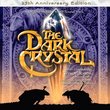
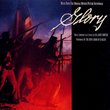
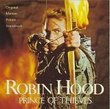
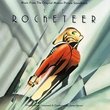



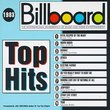
![Lenny: Original MGM Motion Picture Soundtrack [Enhanced CD]](https://nationalbookswap.com/cd//m/81/4781/84781.jpg)

